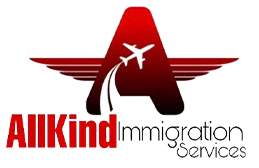Work Permit
A work permit, also known as a work visa, is a document issued by the Canadian government that allows foreign nationals to work in Canada for a specified period of time. Canada offers various types of work permits to individuals who wish to work temporarily in the country. Here’s an article on work permits in Canada, including requirements, application process, and benefits.

What is the Provincial Nominee Program (PNP)?
The Provincial Nominee Program (PNP) is a program through which provinces and territories in Canada can nominate eligible immigrants to become permanent residents and settle in their region. Each province and territory has its own PNP, with its own set of streams and categories tailored to their specific economic and demographic needs.
The PNP is designed to attract skilled workers, entrepreneurs, and other immigrants who can contribute to the local economy and community development. The program allows provinces and territories to have more control over their immigration policies and selection process, and it provides an additional pathway for immigrants to obtain permanent residency in Canada.
Benefits of the Provincial Nominee Program (PNP)
The Provincial Nominee Program (PNP) offers several benefits to eligible immigrants who are nominated by a province or territory in Canada. Here are some of the key benefits of the PNP:
Additional Pathway to Permanent Residency: The PNP provides an additional pathway to obtain permanent residency in Canada for eligible immigrants who may not qualify through other federal immigration programs, such as the Express Entry system or the Family Class Sponsorship Program.
Provincial Nomination Increases CRS Score: If a candidate is nominated by a province or territory through the PNP, they receive additional points in the Comprehensive Ranking System (CRS) used in the Express Entry system, which can significantly increase their chances of receiving an invitation to apply for permanent residency.
Tailored to Provincial or Territorial Needs: The PNP is designed to address the unique economic and demographic needs of each province or territory in Canada. This means that the streams and categories of the PNP are tailored to the specific labor market demands, economic priorities, and community development goals of each region, increasing the chances of finding employment and settling successfully in that province or territory.
Faster Processing Times: The processing times for PNP applications are often faster compared to other federal immigration programs, as the provincial and territorial governments have more control over their nomination process and can prioritize their nominees.
Increased Chance of Provincial Nomination: The PNP provides an opportunity for immigrants to be nominated by a province or territory, which can significantly increase their chances of being invited to apply for permanent residency. Some streams of the PNP may have lower eligibility requirements compared to federal immigration programs, making it more accessible for certain candidates.
Community Support and Integration: The PNP aims to facilitate the integration of immigrants into the local communities of the nominating province or territory. Many provinces and territories provide additional support services, such as settlement assistance, language training, and employment support, to help newcomers settle and integrate into the local community.
Opportunities for Entrepreneurial and Business-minded Immigrants: Some streams of the PNP are specifically designed for entrepreneurs and business-minded immigrants who wish to establish or invest in a business in Canada. These streams may offer additional support, such as business mentorship programs, investment incentives, and streamlined processes for business immigration.
Requirements for the Provincial Nominee Program (PNP)
Eligibility requirements for the PNP vary depending on the province or territory, as each has its own set of streams and categories with specific criteria. However, some common eligibility requirements may include:
Contact Us
- 78 desmond Trudeau Drive, Arnprior, ON, K7S0G7
- (647)-242-0769
- allkindimmigration@gmail.com

